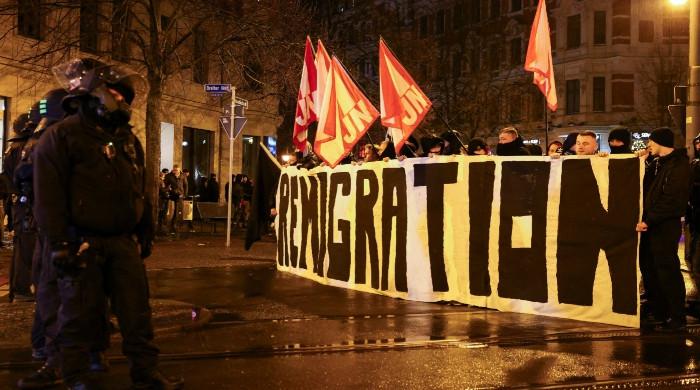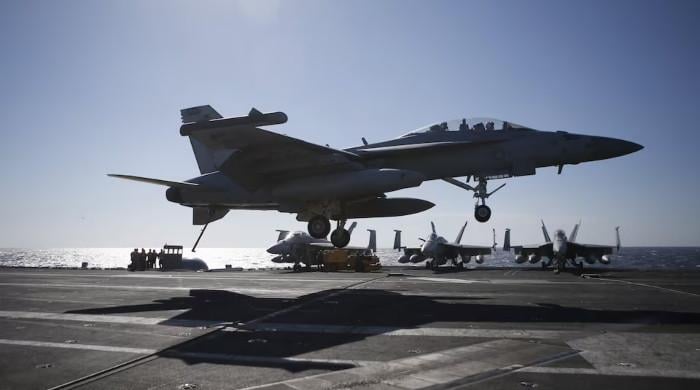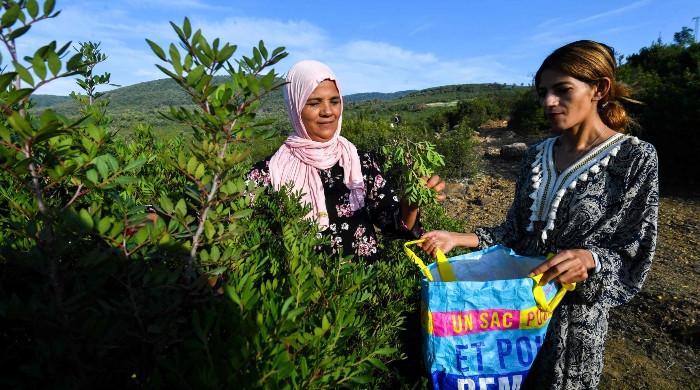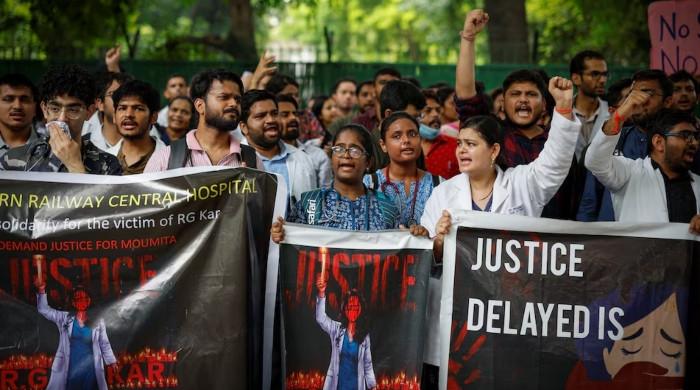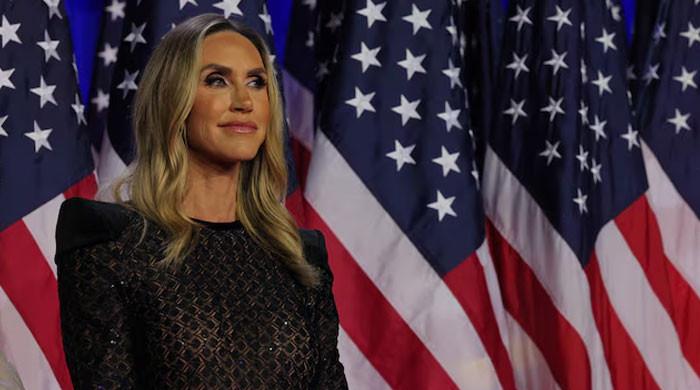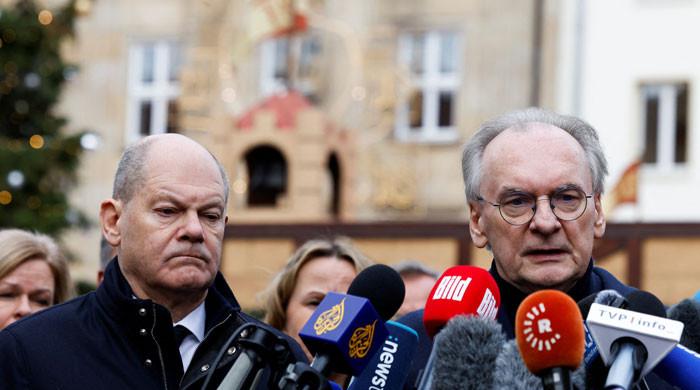UN human rights commissioner ‘remotely monitoring’ Kashmir LoC situation
Pakistan never had any objection to any international body visiting its side of the border, says Pakistan's representative
September 15, 2017
GENEVA: United Nations High Commissioner for Human Rights Zeid Ra'ad Al Hussein said his office has been forced to undertake “remote monitoring of the human rights situation in Kashmir on both sides of the Line of Control (LoC).
During his update presented in the 36th session of the UN Human Rights Council, the High Commissioner for Human Rights said both India and Pakistan have shown reluctance to “engage with my Office on the human rights concerns I have raised in recent months” and refusal “to grant access to Kashmir on both sides of the Line of Control to verify the worrying developments that continue to be reported there”.
Replying to comments by the Human Rights Commissioner, Pakistan’s permanent representative to the at Geneva said that Pakistan never had any objection to any international body visiting its side of the border and was more than willing to facilitate any such visit.
She also questioned why the high commissioner was continuously comparing Indian-occupied Kashmir with Azad Kashmir, where the masses enjoy full liberty and do not have human rights issues.
“The High Commissioner needed to base his oral update on accurate facts. Reports repeatedly highlighted that there was no parallel between Jammu Kashmir and Azad Kashmir. Pakistan outlined that contrary to the situation prevailing in Jammu Kashmir, Pakistan allowed total access for United Nations mechanisms to Azad Kashmir,” said Pakistani the representative.
The UN high commissioner said his office was undertaking remote monitoring “with a view to making the findings public in the near future”.
Sardar Amjad Yousaf representing the World Muslim Congress, asked the UNHRC as to how long will the people of Jammu and Kashmir wait for the council to get permission from the occupying state India to facilitate the UN fact finding mission, which will investigate the disappearances of thousands of people and those who have been extra judicially killed in fake encounters and blinded by the pellet guns.
He also appealed to the UNHRC to help in revoking the draconian law such as Armed Forces Special Power Act (AFSPA), Public Safety Act and Disturbed Areas Act, which allows Indian occupation forces to maim and kill Kashmiris.
Sardar Amjad Yousuf, who hails from a town along the LoC in Azad Kashmir, told the council that people living near the LoC in Azad Kashmir are being killed and injured on a daily basis because of unprovoked Indian firing across the de facto border.
He welcomed the statement made by Pakistan for facilitating the UN mission to AJK but added that India is not ready to facilitate a UN mission to Indian-occupied Kashmir.
In its reply, the Indian representative spoke about the merits of democracy but did not respond to the UN commissioner’s annoyance over the non-cooperation by Indian side with regard to the LoC situation monitoring.
While Pakistan has extended help to India to facilitate the LoC observes, India has either refused permission for monitoring or remained totally non-cooperative.




